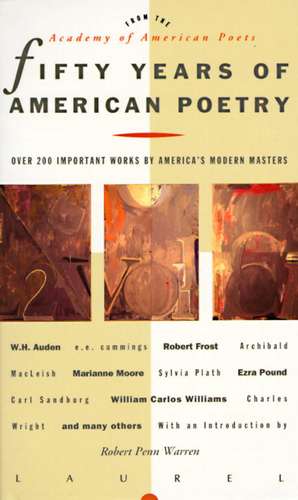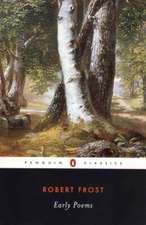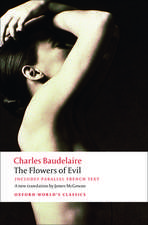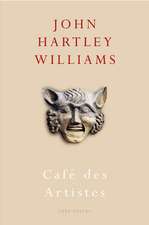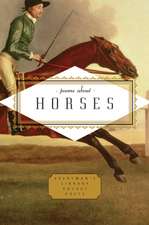Fifty Years of American Poetry: Over 200 Important Works by America's Modern Masters
Autor Academy of American Poets, Joyce L. Vedral Robert Frosten Limba Engleză Paperback – 31 iul 1995
In it are represented, with one poem each, the chancellors, fellows, and award winners of the Academy of American Poets since 1934. The result is a unique sampler of the various literary styles and themes that have left their marks on the past five decades.
Fifty Years of American Poetry gives readers the opportunity to hear familiar voices and new ones--and encounter the great American poems that have captured both our minds and our hearts.
The Academy of American Poets has as its stated purpose ''To encourage, stimulate, and foster the production of American poetry..." This was never limited to poets of any particular school, method, or category of poetry so this anthology is as representative a cross-section of American poetry in the last 50 years as any of its kind. The Academy is not a stodgy eastem provincial institution. It encourages young poets, recognizes the importance of change and growth in the poetry of America, and believes that poetry is not for poets only. This anthology was compiled on this basis. Fifty Years Of American Poetry is not only educational, but also inspirational, hopefully imbuing everyone who reads it with a sense of the dynamic and development of American poetry in the last half century. The Academy of American Poets is the only institution which could compile such a unique anthology because it is the oniy group which has consistently played a large part in the American poetry scene through its patronage to poets and its mission to make poetry an accessible and vital part of the American literary landscape. -->
Preț: 47.43 lei
Nou
Puncte Express: 71
Preț estimativ în valută:
9.08€ • 9.44$ • 7.60£
9.08€ • 9.44$ • 7.60£
Carte disponibilă
Livrare economică 22 februarie-08 martie
Preluare comenzi: 021 569.72.76
Specificații
ISBN-13: 9780440218777
ISBN-10: 0440218772
Pagini: 320
Dimensiuni: 108 x 176 x 23 mm
Greutate: 0.15 kg
Editura: Laurel Press
ISBN-10: 0440218772
Pagini: 320
Dimensiuni: 108 x 176 x 23 mm
Greutate: 0.15 kg
Editura: Laurel Press
Extras
X.J. KENNEDY (1929-)
In a Prominent Bar in Secaucus One Day (1961)
To the tune of "The Old Orange Flute" or the tune of "Sweet Betsy from Pike"
In a prominent bar in Secaucus one day
Rose a lady in skunk with a topheavy sway,
Raised a knobby red finger--all turned from their beer--
While with eyes bright as snowcrust she sang high and clear:
'Now who of you'd think from an eyeload of me
That I once was a lady as proud as could be?
Oh I'd never sit down by a tumbledown drunk
If it wasn't, my dears, for the high cost of junk.
'All the gents used to swear that the white of my calf
Beat the down of the swan by a length and a half.
In the kerchief of linen I caught to my nose
Ah, there never fell snot, but a little gold rose.
'I had seven gold teeth and a toothpick of gold,
My Virginia cheroot was a leaf of it rolled
And I'd light it each time with a thousand in cash--
Why the bums used to fight if I flicked them an ash.
'Once the toast of the Biltmore, the belle of the Taft,
I would drink bottle beer at the Drake, never draft,
And dine at the Astor on Salisbury steak
With a clean tablecloth for each bite I did take.
'In a car like the Roxy I'd roll to the track,
A steel-guitar trio, a bar in the back,
And the wheels made no noise, they turned over so fast,
Still it took you ten minutes to see me go past.
'When the horses bowed down to me that I might choose,
I bet on them all, for I hated to lose.
Now I'm saddled each night for my butter and eggs
And the broken threads race down the backs of my legs.
'Let you hold in mind, girls, that your beauty must pass
Like a lovely white clover that rusts with its grass.
Keep your bottoms off barstools and marry you young
Or be left--an old barrel with many a bung.
'For when time takes you out for a spin in his car
You'll be hard-pressed to stop him from going too far
And be left by the roadsite, for all your good deeds,
Two toadstools for tits and a face full of weeds.'
All the house raised a cheer, but the man at the bar
Made a phonecall and up pulled a red patrol car
And she blew us a kiss as they copped her away
From that prominent bar in Secaucus, NJ.
ROBERT NATHAN (1894-)
Now Blue October (1950)
Now blue October, smoky in the sun,
Must end the long, sweet summer of the heart.
The last brief visit of the birds is done;
They sing the autumn songs before they part.
Listen, how lovely--there's the thrush we heard
When June was small with roses, and the bending
Blossom of branches covered nest and bird,
Singing the summer in, summer unending--
Give me your hand once more before the night;
See how the meadows darken with the frost,
How fades the green that was the summer's light.
Beauty is only altered, never lost
And love, before the cold November rain,
Will make its summer in the heart again.
JOHN UPDIKE (1932-)
Telephone Poles (1963)
They have been with us a long time.
They will outlast the elms.
Our eyes, like the eyes of a savage sieving the trees
In his search for game,
Run through them. They blend along small-town streets
Like a race of giants that have faded into mere mythology.
Our eyes, washed clean of belief,
Lift incredulous to their fearsome crowns of bolts, trusses, struts, nuts, insulators, and such
Barnacles as compose
These weathered encrustations of electrical debris--
Each a Gorgon's head, which, seized right,
Could stun us to stone.
Yet they are ours. We made them.
See here, where the cleats of linemen
Have roughened a second bark
Onto the bald trunk. And these spikes
Have been driven sideways at intervals handy for human legs.
The Nature of our construction is in every way
A better fit than the Nature it displaces.
What other tree can you climb where the birds' twitter,
Unscrambled, is English? True, their thin shade is negligible,
But then again there is not that tragic autumnal
Casting-off of leaves to outface annually.
These giants are more constant than evergreens
By being never green.
SYLVIA PLATH (1932-1963)
Last Words (1961)
I do not want a plain box, I want a sarcophagus
With tigery stripes, and a face on it
Round as the moon, to stare up.
I want to be looking at them when they come
Picking among the dumb minerals, the roots.
I see them already--the pale, star-distance faces.
Now they are nothing, they are not even babies.
I imagine them without fathers or mothers, like the first gods.
They will wonder if I was important.
I should sugar and preserve my days like fruit!
My mirror is clouding over--
A few more breaths, and it will reflect nothing at all.
The flowers and the faces whiten to a sheet.
I do not trust the spirit. It escapes like steam
In dreams, through mouth-hole or eye-hole. I can't stop it.
One day it won't come back. Things aren't like that.
They stay, their little particular lusters
Warmed by much handling. They almost purr.
When the soles of my feet grow cold,
The blue eye of my turquoise will comfort me.
Let me have my copper cooking pots, let my rouge pots
Bloom about me like night flowers, with a good smell.
They will roll me up in bandages, they will store my heart
Under my feet in a neat parcel.
I shall hardly know myself. It will be dark,
And the shine of these small things sweeter than the face of Ishtar.
JOHN ASHBERY (1927-)
For John Clare (1970)
Kind of empty in the way it sees everything, the earth gets to its feet and salutes the sky. More of a success at it this time than most others it is. The feeling that the sky might be in the back of someone's mind. Then there is no telling how many there are. They grace everything--bush and tree--to take the roisterer's mind off his caroling--so it's like a smooth switch back. To what was aired in their previous conniption fit. There is so much to be seen everywhere that it's like not getting used to it, only there is so much it never feels new, never any different. You are standing looking at that building and you cannot take it all in, certain details are already hazy and the mind boggles. What will it all be like in five years' time when you try to remember? Will there have been boards in between the grass part and the edge of the street? As long as that couple is stopping to look in that window over there we cannot go. We feel like they have to tell us we can, but they never look our way and they are already gone, gone far into the future--the night of time. If we could look at a photograph of it and say there they are, they never really stopped but there they are. There is so much to be said, and on the surface of it very little gets said.
There ought to be room for more things, for a spreading out, like. Being immersed in the details of rock and field and slope--letting them come to you for once, and then meeting them halfway would be so much easier--if they took an ingenuous pride in being in one's blood. Alas, we perceive them if at all as those things that were meant to be put aside--costumes of the supporting actors or voice trilling at the end of a narrow enclosed street. You can do nothing with them. Not even offer to pay.
It is possible that finally, like coming to the end of a long, barely perceptible rise, there is mutual cohesion and interaction. The whole scene is fixed in your mind, the music all present, as though you could see each note as well as hear it. I say this because there is an uneasiness in things just now. Waiting for something to be over before you are forced to notice it. The pollarded trees scarcely bucking the wind--and yet it's keen, it makes you fall over. Clabbered sky. Seasons that pass with a rush. After all it's their time too--nothing says they aren't to make something of it. As for Jenny Wren, she cares, hopping about on her little twig like she was tryin' to tell us somethin', but that's just it, she couldn't even if she wanted to--dumb bird. But the others--and they in some way must know too--it would never occur to them to want to, even if they could take the first step of the terrible journey toward feeling somebody should act, that ends in utter confusion and hopelessness east of the sun and west of the moon. So their comment is "No comment." Meanwhile the whole history of probabilities is coming to life, starting in the upper left-hand corner, like a sail.
GEORGE STARBUCK (1931-)
The Spell Against Spelling (1982)
(a poem to be inscribed in dark places and never to be spoken aloud)
My favorite student lately is the one who wrote about feeling clumbsy.
I mean if he wanted to say how it feels to be all thumbs he
Certainly picked the write language to right in in the first place
I mean better to clutter a word up like the old Hearst place
Than to just walk off the job and not give a dam.
Another student gave me a diagragm.
"The Diagragm of the Plot in Henry the VIIIth."
Those, though, were instances of the sublime.
The wonder is in the wonders they can come up with every time.
Why do they all say heighth, but never weighth?
If chrystal can look like English to them, how come chryptic can't?
I guess cwm, chthonic, qanat, or quattrocento
Always gets looked up. But never momento.
Momento they know. Like wierd. Like differant.
It is a part of their deep deep-structure vocabulary:
Their stone axe, their dark bent-offering to the gods:
Their protoCro-Magnon pre-pre-sapient survival-against-cultural-odds.
You won't get me deputized in some Spelling Constabulary.
I'd sooner abandon the bag-toke-whiff system and go decimal.
I'm on their side. I better be, after my brush with "infinitessimal."
There it was, right where I put it, in my brand-new book.
And my friend Peter Davison read it, and he gave me this look,
And he held the look for a little while and said, "George..."
I needed my students at that moment. I, their Scourge.
I needed them. Needed their sympathy. Needed their care.
"Their their," I needed to hear them say, "their their."
You see, there are Spellers in this world, I mean mean ones too.
They shadow us around like a posse of Joe Btfsplks
Waiting for us to sit down at our study-desks and go shrdlu
So they can pop in at the windows saying "tsk tsk."
I know they're there. I know where the beggars are,
With their flash cards looking like prescriptions for the catarrh
And their mnemnmonics, blast 'em. They go too farrh.
I do not stoop to impugn, indict, or condemn;
But I know how to get back at the likes of thegm.
For a long time, I keep mumb.
I let 'em wait, while a preternatural calmn
Rises to me from the depths of my upwardly opened palmb.
Then I raise my eyes like some wizened-and-wisened gnolmbn,
Stranger to scissors, stranger to razor and coslmbn,
And I fix those birds with my gaze till my gaze strikes hoslgmbn,
And I say one word, and the word that I say is "Oslgmbnh."
"Om?" they inquire. "No, not exactly. Oslgmbnh.
Watch me carefully while I pronounce it because you've got only two more guesses
And you only get one more hint there's an odd number of esses,
And you only get ten more seconds no nine more seconds no eight
And a right answer doesn't count if it comes in late
And a wrong answer bumps you out of the losers' bracket
And disqualifies you for the National Spellathon Contestant jacket
And that's all the time extension you're going to gebt
So go pick up your consolation prizes from the usherebt
And don't be surprised if it's the bowdlerized regularized paperback abridgment of Pepys
Because around here, gentlemen, we play for kepys."
Then I drive off in my chauffeured Cadillac Fleetwood Brougham
Like something out of the last days of Fellini's Rougham
And leave them smiting their brows and exclaiming to each other "Ougham!
O-U-G-H-A-M Ougham!" and tearing their hair.
Intricate are the compoundments of despair.
Well, brevity must be the soul of something-or-other.
Not, certainly, of spelling, in the good old mother
Tongue of Shakespeare, Raleigh, Marvell, and Vaughan.
But something. One finds out as one goes aughan.
"In a Prominent Bar in Secaucus One Day" from Nude Descending a Staircase by X.J. Kennedy (Doubleday), reprinted by permission of the author and Curtis Brown Ltd. Copyright © 1961 by X.J. Kennedy.
"Now Blue October" by Robert Nathan, from The Green Leaf (Alfred A. Knopf), reprinted by permission of the author. Copyright © 1950 by Robert Nathan.
"Telephone Poles" from Telephone Poles and Other Poems by John Updike. Reprinted by permission of Alfred A. Knopf. Copyright © 1963 by John Updike.
"Last Words" from The Collected Poems of Sylvia Plath, edited by Ted Hughes. Copyright © 1961 by Ted Hughes. Reprinted by Harper & Row, Publishers, Inc.
"For John Clare" from The Double Dream of Spring by John Ashbery, reprinted by permission of Ecco Press. Copyright © 1970 by John Ashbery.
"Spell Against Spelling" from The Argot Merchany Disaster by George Starbuck, copyright © 1970 by George Starbuck. First appeared in The Atlantic Monthly. By permission of Little, Brown and Company in association with the Atlantic Monthly Press.
In a Prominent Bar in Secaucus One Day (1961)
To the tune of "The Old Orange Flute" or the tune of "Sweet Betsy from Pike"
In a prominent bar in Secaucus one day
Rose a lady in skunk with a topheavy sway,
Raised a knobby red finger--all turned from their beer--
While with eyes bright as snowcrust she sang high and clear:
'Now who of you'd think from an eyeload of me
That I once was a lady as proud as could be?
Oh I'd never sit down by a tumbledown drunk
If it wasn't, my dears, for the high cost of junk.
'All the gents used to swear that the white of my calf
Beat the down of the swan by a length and a half.
In the kerchief of linen I caught to my nose
Ah, there never fell snot, but a little gold rose.
'I had seven gold teeth and a toothpick of gold,
My Virginia cheroot was a leaf of it rolled
And I'd light it each time with a thousand in cash--
Why the bums used to fight if I flicked them an ash.
'Once the toast of the Biltmore, the belle of the Taft,
I would drink bottle beer at the Drake, never draft,
And dine at the Astor on Salisbury steak
With a clean tablecloth for each bite I did take.
'In a car like the Roxy I'd roll to the track,
A steel-guitar trio, a bar in the back,
And the wheels made no noise, they turned over so fast,
Still it took you ten minutes to see me go past.
'When the horses bowed down to me that I might choose,
I bet on them all, for I hated to lose.
Now I'm saddled each night for my butter and eggs
And the broken threads race down the backs of my legs.
'Let you hold in mind, girls, that your beauty must pass
Like a lovely white clover that rusts with its grass.
Keep your bottoms off barstools and marry you young
Or be left--an old barrel with many a bung.
'For when time takes you out for a spin in his car
You'll be hard-pressed to stop him from going too far
And be left by the roadsite, for all your good deeds,
Two toadstools for tits and a face full of weeds.'
All the house raised a cheer, but the man at the bar
Made a phonecall and up pulled a red patrol car
And she blew us a kiss as they copped her away
From that prominent bar in Secaucus, NJ.
ROBERT NATHAN (1894-)
Now Blue October (1950)
Now blue October, smoky in the sun,
Must end the long, sweet summer of the heart.
The last brief visit of the birds is done;
They sing the autumn songs before they part.
Listen, how lovely--there's the thrush we heard
When June was small with roses, and the bending
Blossom of branches covered nest and bird,
Singing the summer in, summer unending--
Give me your hand once more before the night;
See how the meadows darken with the frost,
How fades the green that was the summer's light.
Beauty is only altered, never lost
And love, before the cold November rain,
Will make its summer in the heart again.
JOHN UPDIKE (1932-)
Telephone Poles (1963)
They have been with us a long time.
They will outlast the elms.
Our eyes, like the eyes of a savage sieving the trees
In his search for game,
Run through them. They blend along small-town streets
Like a race of giants that have faded into mere mythology.
Our eyes, washed clean of belief,
Lift incredulous to their fearsome crowns of bolts, trusses, struts, nuts, insulators, and such
Barnacles as compose
These weathered encrustations of electrical debris--
Each a Gorgon's head, which, seized right,
Could stun us to stone.
Yet they are ours. We made them.
See here, where the cleats of linemen
Have roughened a second bark
Onto the bald trunk. And these spikes
Have been driven sideways at intervals handy for human legs.
The Nature of our construction is in every way
A better fit than the Nature it displaces.
What other tree can you climb where the birds' twitter,
Unscrambled, is English? True, their thin shade is negligible,
But then again there is not that tragic autumnal
Casting-off of leaves to outface annually.
These giants are more constant than evergreens
By being never green.
SYLVIA PLATH (1932-1963)
Last Words (1961)
I do not want a plain box, I want a sarcophagus
With tigery stripes, and a face on it
Round as the moon, to stare up.
I want to be looking at them when they come
Picking among the dumb minerals, the roots.
I see them already--the pale, star-distance faces.
Now they are nothing, they are not even babies.
I imagine them without fathers or mothers, like the first gods.
They will wonder if I was important.
I should sugar and preserve my days like fruit!
My mirror is clouding over--
A few more breaths, and it will reflect nothing at all.
The flowers and the faces whiten to a sheet.
I do not trust the spirit. It escapes like steam
In dreams, through mouth-hole or eye-hole. I can't stop it.
One day it won't come back. Things aren't like that.
They stay, their little particular lusters
Warmed by much handling. They almost purr.
When the soles of my feet grow cold,
The blue eye of my turquoise will comfort me.
Let me have my copper cooking pots, let my rouge pots
Bloom about me like night flowers, with a good smell.
They will roll me up in bandages, they will store my heart
Under my feet in a neat parcel.
I shall hardly know myself. It will be dark,
And the shine of these small things sweeter than the face of Ishtar.
JOHN ASHBERY (1927-)
For John Clare (1970)
Kind of empty in the way it sees everything, the earth gets to its feet and salutes the sky. More of a success at it this time than most others it is. The feeling that the sky might be in the back of someone's mind. Then there is no telling how many there are. They grace everything--bush and tree--to take the roisterer's mind off his caroling--so it's like a smooth switch back. To what was aired in their previous conniption fit. There is so much to be seen everywhere that it's like not getting used to it, only there is so much it never feels new, never any different. You are standing looking at that building and you cannot take it all in, certain details are already hazy and the mind boggles. What will it all be like in five years' time when you try to remember? Will there have been boards in between the grass part and the edge of the street? As long as that couple is stopping to look in that window over there we cannot go. We feel like they have to tell us we can, but they never look our way and they are already gone, gone far into the future--the night of time. If we could look at a photograph of it and say there they are, they never really stopped but there they are. There is so much to be said, and on the surface of it very little gets said.
There ought to be room for more things, for a spreading out, like. Being immersed in the details of rock and field and slope--letting them come to you for once, and then meeting them halfway would be so much easier--if they took an ingenuous pride in being in one's blood. Alas, we perceive them if at all as those things that were meant to be put aside--costumes of the supporting actors or voice trilling at the end of a narrow enclosed street. You can do nothing with them. Not even offer to pay.
It is possible that finally, like coming to the end of a long, barely perceptible rise, there is mutual cohesion and interaction. The whole scene is fixed in your mind, the music all present, as though you could see each note as well as hear it. I say this because there is an uneasiness in things just now. Waiting for something to be over before you are forced to notice it. The pollarded trees scarcely bucking the wind--and yet it's keen, it makes you fall over. Clabbered sky. Seasons that pass with a rush. After all it's their time too--nothing says they aren't to make something of it. As for Jenny Wren, she cares, hopping about on her little twig like she was tryin' to tell us somethin', but that's just it, she couldn't even if she wanted to--dumb bird. But the others--and they in some way must know too--it would never occur to them to want to, even if they could take the first step of the terrible journey toward feeling somebody should act, that ends in utter confusion and hopelessness east of the sun and west of the moon. So their comment is "No comment." Meanwhile the whole history of probabilities is coming to life, starting in the upper left-hand corner, like a sail.
GEORGE STARBUCK (1931-)
The Spell Against Spelling (1982)
(a poem to be inscribed in dark places and never to be spoken aloud)
My favorite student lately is the one who wrote about feeling clumbsy.
I mean if he wanted to say how it feels to be all thumbs he
Certainly picked the write language to right in in the first place
I mean better to clutter a word up like the old Hearst place
Than to just walk off the job and not give a dam.
Another student gave me a diagragm.
"The Diagragm of the Plot in Henry the VIIIth."
Those, though, were instances of the sublime.
The wonder is in the wonders they can come up with every time.
Why do they all say heighth, but never weighth?
If chrystal can look like English to them, how come chryptic can't?
I guess cwm, chthonic, qanat, or quattrocento
Always gets looked up. But never momento.
Momento they know. Like wierd. Like differant.
It is a part of their deep deep-structure vocabulary:
Their stone axe, their dark bent-offering to the gods:
Their protoCro-Magnon pre-pre-sapient survival-against-cultural-odds.
You won't get me deputized in some Spelling Constabulary.
I'd sooner abandon the bag-toke-whiff system and go decimal.
I'm on their side. I better be, after my brush with "infinitessimal."
There it was, right where I put it, in my brand-new book.
And my friend Peter Davison read it, and he gave me this look,
And he held the look for a little while and said, "George..."
I needed my students at that moment. I, their Scourge.
I needed them. Needed their sympathy. Needed their care.
"Their their," I needed to hear them say, "their their."
You see, there are Spellers in this world, I mean mean ones too.
They shadow us around like a posse of Joe Btfsplks
Waiting for us to sit down at our study-desks and go shrdlu
So they can pop in at the windows saying "tsk tsk."
I know they're there. I know where the beggars are,
With their flash cards looking like prescriptions for the catarrh
And their mnemnmonics, blast 'em. They go too farrh.
I do not stoop to impugn, indict, or condemn;
But I know how to get back at the likes of thegm.
For a long time, I keep mumb.
I let 'em wait, while a preternatural calmn
Rises to me from the depths of my upwardly opened palmb.
Then I raise my eyes like some wizened-and-wisened gnolmbn,
Stranger to scissors, stranger to razor and coslmbn,
And I fix those birds with my gaze till my gaze strikes hoslgmbn,
And I say one word, and the word that I say is "Oslgmbnh."
"Om?" they inquire. "No, not exactly. Oslgmbnh.
Watch me carefully while I pronounce it because you've got only two more guesses
And you only get one more hint there's an odd number of esses,
And you only get ten more seconds no nine more seconds no eight
And a right answer doesn't count if it comes in late
And a wrong answer bumps you out of the losers' bracket
And disqualifies you for the National Spellathon Contestant jacket
And that's all the time extension you're going to gebt
So go pick up your consolation prizes from the usherebt
And don't be surprised if it's the bowdlerized regularized paperback abridgment of Pepys
Because around here, gentlemen, we play for kepys."
Then I drive off in my chauffeured Cadillac Fleetwood Brougham
Like something out of the last days of Fellini's Rougham
And leave them smiting their brows and exclaiming to each other "Ougham!
O-U-G-H-A-M Ougham!" and tearing their hair.
Intricate are the compoundments of despair.
Well, brevity must be the soul of something-or-other.
Not, certainly, of spelling, in the good old mother
Tongue of Shakespeare, Raleigh, Marvell, and Vaughan.
But something. One finds out as one goes aughan.
"In a Prominent Bar in Secaucus One Day" from Nude Descending a Staircase by X.J. Kennedy (Doubleday), reprinted by permission of the author and Curtis Brown Ltd. Copyright © 1961 by X.J. Kennedy.
"Now Blue October" by Robert Nathan, from The Green Leaf (Alfred A. Knopf), reprinted by permission of the author. Copyright © 1950 by Robert Nathan.
"Telephone Poles" from Telephone Poles and Other Poems by John Updike. Reprinted by permission of Alfred A. Knopf. Copyright © 1963 by John Updike.
"Last Words" from The Collected Poems of Sylvia Plath, edited by Ted Hughes. Copyright © 1961 by Ted Hughes. Reprinted by Harper & Row, Publishers, Inc.
"For John Clare" from The Double Dream of Spring by John Ashbery, reprinted by permission of Ecco Press. Copyright © 1970 by John Ashbery.
"Spell Against Spelling" from The Argot Merchany Disaster by George Starbuck, copyright © 1970 by George Starbuck. First appeared in The Atlantic Monthly. By permission of Little, Brown and Company in association with the Atlantic Monthly Press.
Descriere
The Academy of American Poets is the only institution which could compile such a diverse and comprehensive anthology of America's esteemed modern poets. From its introduction by preeminent poet, novelist and critic Robert Penn Warren to its enlivening illustrations, this volume is a treasure for everyone who loves the written word. (Poetry)
